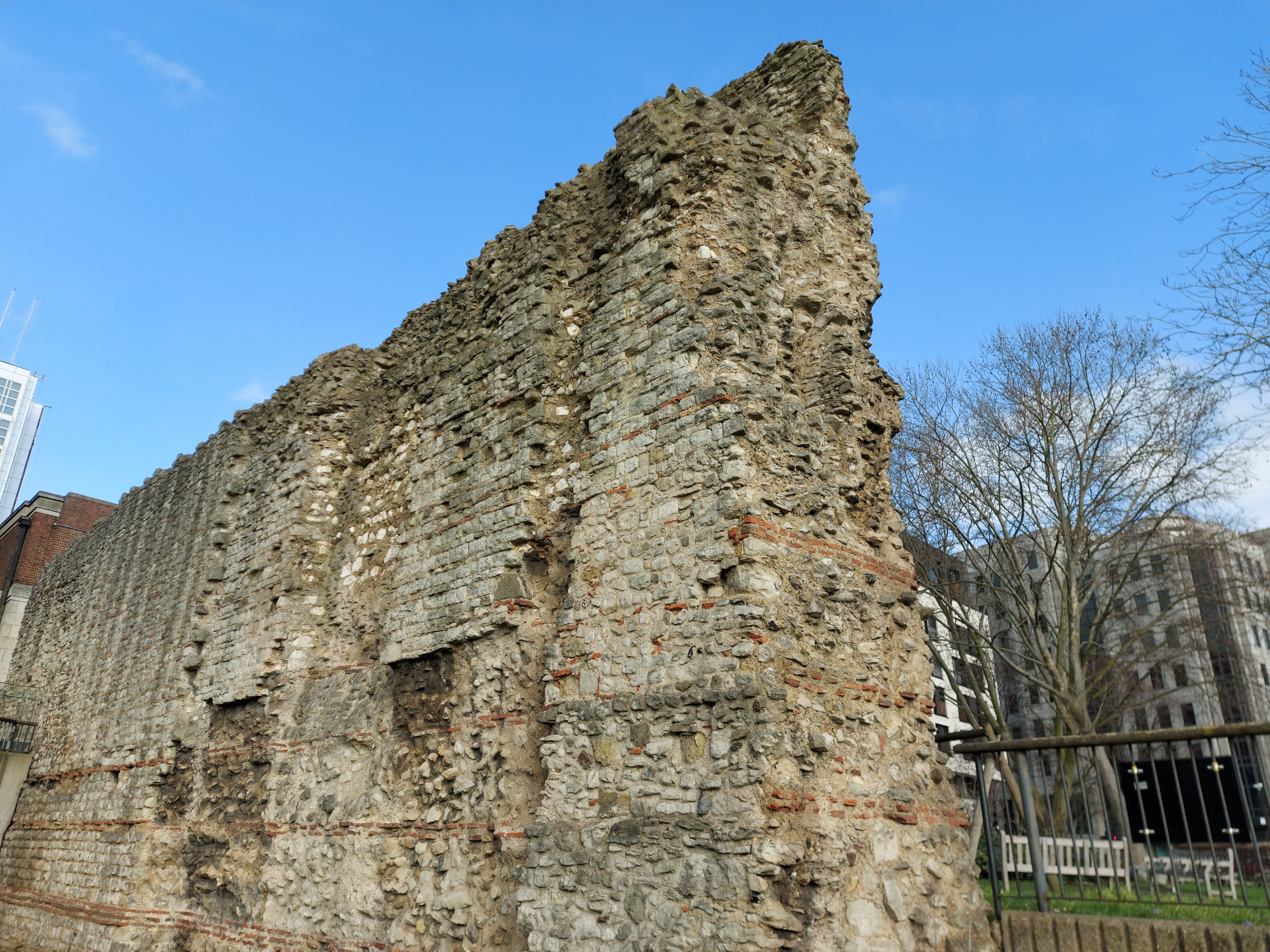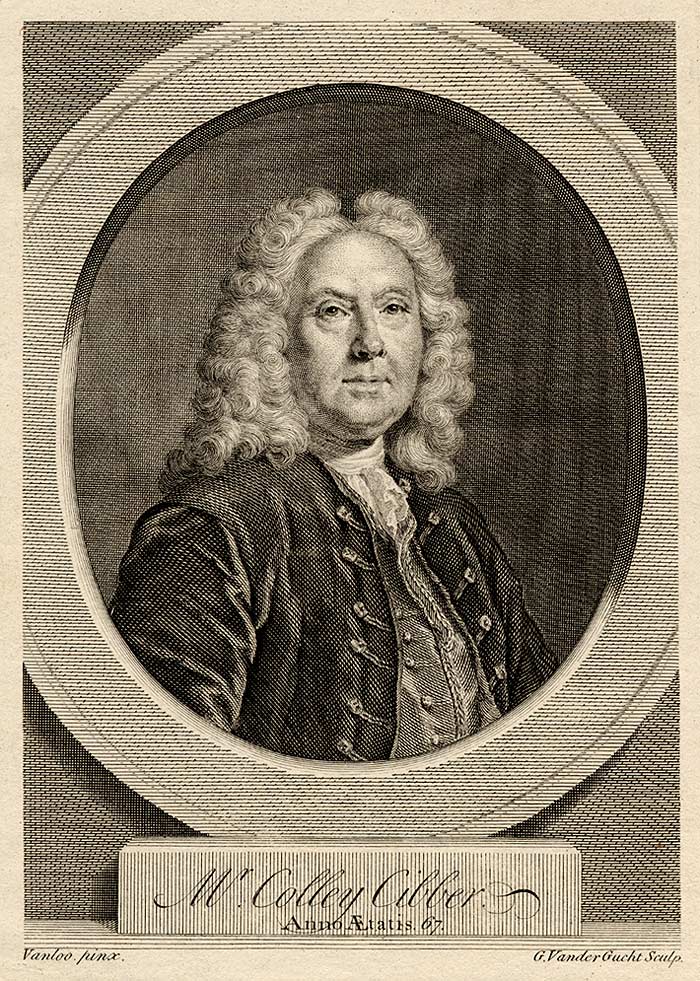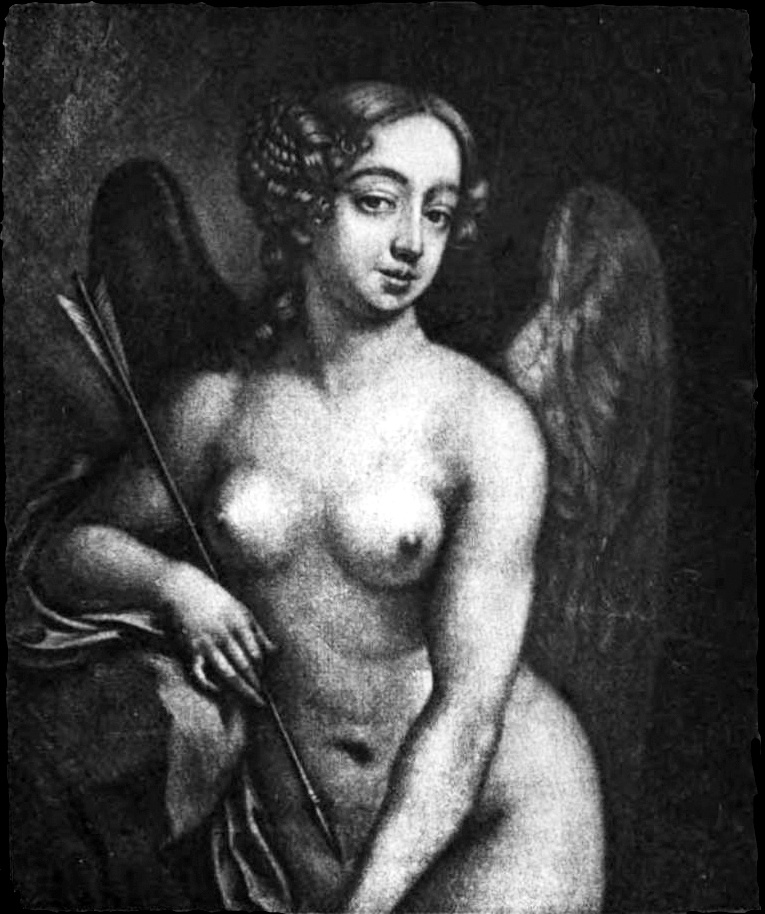|
Thomas Otway
Thomas Otway (3 March 165214 April 1685) was an English dramatist of the Restoration period, best known for '' Venice Preserv'd'', or ''A Plot Discover'd'' (1682). Life Otway was born at Trotton near Midhurst, the parish of which his father, Humphrey Otway, was at that time curate. Humphrey later became rector of Woolbeding, a neighbouring parish, where Thomas Otway was brought up and expected to commit to priesthood. He was educated at Winchester College, and in 1669 entered Christ Church, Oxford, as a commoner, but left the university without a degree in the autumn of 1672. At Oxford he made the acquaintance of Anthony Cary, 5th Viscount Falkland, through whom, he says in the dedication to '' Caius Marius'', he first learned to love books. In London he made acquaintance with Aphra Behn, who in 1672 cast him as the old king in her play, ''Forc'd Marriage, or The Jealous Bridegroom'', at the Dorset Garden Theatre. However, due to severe stage fright, he gave an abysmal perf ... [...More Info...] [...Related Items...] OR: [Wikipedia] [Google] [Baidu] |
John Riley (painter, Born 1646)
John Riley, or Ryley, (1646 – March 1691) was an English portrait painter. He painted portraits of Charles II and James II, and was court painter to William III and Mary II. One of his pupils was Jonathan Richardson. Life and work Riley was born in London, one of the sons of William Ryley, Lancaster Herald and keeper of the records in the Tower of London, who was created Norroy king-at-arms under the Commonwealth, but reverted to his herald's office at the Stuart Restoration. Another son, Thomas Riley, was an actor. Riley studied painting under Isaac Fuller and Gerard Soest, and from the latter learnt a forcible, straightforward style of portraiture which rendered his portraits noteworthy. Riley did not attain much eminence until the death of Sir Peter Lely, when courtier and royal official Thomas Chiffinch sat for him, and was so much pleased with his portrait that he showed it to the King. Charles II gave Riley some commissions, and eventually himself sat for him ... [...More Info...] [...Related Items...] OR: [Wikipedia] [Google] [Baidu] |
Dorset Garden Theatre
The Dorset Garden Theatre in London, built in 1671, was in its early years also known as the Duke of York's Theatre, or the Duke's Theatre. In 1685, King Charles II died and his brother, the Duke of York, was crowned as James II. When the Duke became King, the theatre became the Queen's Theatre in 1685, referring to James' second wife, Mary of Modena. The name remained when William III and Mary II came to the throne in 1689. It was the fourth home of the Duke's Company, one of the two patent theatre companies in Restoration London, and after 1682 continued to be used by the company's successor, the United Company. It was demolished in 1709. Background After years of being banned during the Interregnum, theatre performances were again permitted on the Restoration of Charles II with the grant of Letters Patent to two companies to perform "legitimate drama" in London. The Duke's Company was patronised by the Duke of York (later James II); the other patent theatre company, ... [...More Info...] [...Related Items...] OR: [Wikipedia] [Google] [Baidu] |
Alcibiades (play)
''Alcibiades'' is a 1675 tragedy by the English writer Thomas Otway, based on the life of the Athenian statesman and general Alcibiades. Staged by the Duke's Company, it premiered at the Dorset Garden Theatre in London with a cast that featured Thomas Betterton as Alcibiades, Matthew Medbourne as Agis, Samuel Sandford as Tissaphernes, John Crosby as Patroclus, Henry Harris as Theramnes, Thomas Gillow as Polyndus, Mary Lee as Deidamia, Mary Betterton as Timandra and Elizabeth Barry Elizabeth Barry (1658 – 7 November 1713) was an English actress of the Restoration period. Elizabeth Barry's biggest influence on Restoration drama was her presentation of performing as the tragic actress. She worked in large, prestigious ... as Draxilla.Van Lennep p.239 References Bibliography * Van Lennep, W. ''The London Stage, 1660-1800: Volume One, 1660-1700''. Southern Illinois University Press, 1960. 1675 plays West End plays Tragedy plays Plays by Thomas Otway Biographic ... [...More Info...] [...Related Items...] OR: [Wikipedia] [Google] [Baidu] |
Thomas Betterton
Thomas Betterton (August 1635 – 28 April 1710) was the leading male actor and theatre manager during Restoration England. He was the son of an under-cook to King Charles I and was born in London. Apprentice and actor Betterton was born in August 1635 in Tothill Street, Westminster. He was apprenticed to John Holden, Sir William Davenant's publisher, and possibly later to a bookseller named John Rhodes, who had been wardrobe-keeper at the Blackfriars Theatre. In 1659, Rhodes obtained a license to set up a company of players at the Cockpit Theatre in Drury Lane; and on the reopening of this theatre in 1660, Betterton made his first appearance on the stage. Betterton's talents at once brought him into prominence, and he was given leading parts. On the opening of the new theatre in Lincoln's Inn Fields in 1661, Davenant, the patentee of the Duke's Company, engaged Betterton and all Rhodes's company to play in his '' The Siege of Rhodes''. Also in 1661 he played Prince Alva ... [...More Info...] [...Related Items...] OR: [Wikipedia] [Google] [Baidu] |
William Blake - Thomas Otway - Manchester City Gallery - Tempera On Canvas C 1800
William is a masculine given name of Germanic origin. It became popular in England after the Norman conquest in 1066,All Things William"Meaning & Origin of the Name"/ref> and remained so throughout the Middle Ages and into the modern era. It is sometimes abbreviated "Wm." Shortened familiar versions in English include Will or Wil, Wills, Willy, Willie, Bill, Billie, and Billy. A common Irish form is Liam. Scottish diminutives include Wull, Willie or Wullie (as in Oor Wullie). Female forms include Willa, Willemina, Wilma and Wilhelmina. Etymology William is related to the German given name ''Wilhelm''. Both ultimately descend from Proto-Germanic ''*Wiljahelmaz'', with a direct cognate also in the Old Norse name ''Vilhjalmr'' and a West Germanic borrowing into Medieval Latin ''Willelmus''. The Proto-Germanic name is a compound of *''wiljô'' "will, wish, desire" and *''helmaz'' "helm, helmet".Hanks, Hardcastle and Hodges, ''Oxford Dictionary of First Names'', Oxford Univer ... [...More Info...] [...Related Items...] OR: [Wikipedia] [Google] [Baidu] |
Tower Hill, London
Tower Hill is the area surrounding the Tower of London in the London Borough of Tower Hamlets. It is infamous for the public execution of high status prisoners from the late 14th to the mid 18th century. The execution site on the higher ground north-west of the Tower of London moat is now occupied by Trinity Square Gardens. Tower Hill rises from the north bank of the River Thames to reach a maximum height of 14.5 metres (48 ft) Ordnance Datum. The land was historically part of the Liberties of the Tower of London, an area the Tower authorities controlled to keep clear of any development which would reduce the defensibility of the Tower. Building has encroached to a degree, but a legacy of this control is that much of the hill is still open. The hill includes land on either side of the London Wall, a large remnant of which is visible. Definition Generally speaking, the name Tower Hill informally applies to those parts of the Tower Liberty that are outside the T ... [...More Info...] [...Related Items...] OR: [Wikipedia] [Google] [Baidu] |
Theophilus Cibber
Theophilus Cibber (25 or 26 November 1703 – October 1758) was an English actor, playwright, author, and son of the actor-manager Colley Cibber. He began acting at an early age, and followed his father into theatrical management. In 1727, Alexander Pope satirised Theophilus Cibber in his ''The Dunciad, Dunciad'' as a youth who "thrusts his person full into your face" (III 132). On the stage, he was famous for playing Pistol in ''Henry IV, Part 2'', and some of the comic roles his father had played when younger, but unsympathetic critics accused him of overemphasis.Barker, p. 166 His private life later led Theophilus into bad reputation and scandal. In October of 1758, Theophilus set sail for Dublin at the behest of Thomas Sheridan, owner of the Theatre Royal, Dublin, Theatre Royal. However, his ship was driven off course and Theophilus perished when it was wrecked off the coast of Scotland. Early life and career Theophilus Cibber was born during the Great Storm of 1703 and bega ... [...More Info...] [...Related Items...] OR: [Wikipedia] [Google] [Baidu] |
Nell Gwyn
Eleanor Gwyn (also spelled Gwynn, Gwynne; 2 February 1650 – 14 November 1687) was an English people, English stage actress and celebrity figure of the Stuart Restoration, Restoration period. Praised by Samuel Pepys for her comic performances as one of the first actresses on the English stage, she became best known for being a longtime royal mistress, mistress of King Charles II of England ( – 6 February 1685). Called "pretty, witty Nell" by Pepys, she has been regarded as a living embodiment of the spirit of Restoration England, and has come to be considered a folk heroine, with a story echoing the rags-to-royalty tale of Cinderella. Gwyn had two sons by King Charles: Charles Beauclerk, 1st Duke of St Albans, Charles Beauclerk (1670–1726) and James Beauclerk (1671–1680). Charles Beauclerk was created Earl of Burford and Duke of St Albans; Murray Beauclerk, 14th Duke of St Albans is her descendant, and the current holder of the title. Early life The details of Gwyn's bac ... [...More Info...] [...Related Items...] OR: [Wikipedia] [Google] [Baidu] |
Elkanah Settle
Elkanah Settle (1 February 1648 – 12 February 1724) was an English poet and playwright. Biography He was born at Dunstable, and entered Trinity College, Oxford, in 1666, but left without taking a degree. His first tragedy, '' Cambyses, King of Persia'', was produced at Lincoln's Inn Fields in 1667. The success of this play led the Earl of Rochester to encourage the new writer as a rival to John Dryden. Through his influence, Settle's '' The Empress of Morocco'' (1673) was twice performed at Whitehall, and proved a great success. It is said by John Dennis to have been "the first play that was ever sold in England for two shillings, and the first play that was ever printed with cuts." These illustrations represent scenes in the theatre, and make the book very valuable. The play was printed with a preface to the Earl of Norwich, in which Settle described with scorn the effusive dedications of other dramatic poets. Dryden was obviously aimed at, and he co-operated with John C ... [...More Info...] [...Related Items...] OR: [Wikipedia] [Google] [Baidu] |
Netherlands
, Terminology of the Low Countries, informally Holland, is a country in Northwestern Europe, with Caribbean Netherlands, overseas territories in the Caribbean. It is the largest of the four constituent countries of the Kingdom of the Netherlands. The Netherlands consists of Provinces of the Netherlands, twelve provinces; it borders Germany to the east and Belgium to the south, with a North Sea coastline to the north and west. It shares Maritime boundary, maritime borders with the United Kingdom, Germany, and Belgium. The official language is Dutch language, Dutch, with West Frisian language, West Frisian as a secondary official language in the province of Friesland. Dutch, English_language, English, and Papiamento are official in the Caribbean Netherlands, Caribbean territories. The people who are from the Netherlands is often referred to as Dutch people, Dutch Ethnicity, Ethnicity group, not to be confused by the language. ''Netherlands'' literally means "lower countries" i ... [...More Info...] [...Related Items...] OR: [Wikipedia] [Google] [Baidu] |
Charles II Of England
Charles II (29 May 1630 – 6 February 1685) was King of Scotland from 1649 until 1651 and King of England, Scotland, and King of Ireland, Ireland from the 1660 Restoration of the monarchy until his death in 1685. Charles II was the eldest surviving child of Charles I of England, Scotland and Ireland and Henrietta Maria of France. After Charles I's execution at Palace of Whitehall, Whitehall on 30 January 1649, at the climax of the English Civil War, the Parliament of Scotland proclaimed Charles II king on 5 February 1649. However, England entered the period known as the English Interregnum or the English Commonwealth with a republican government eventually led by Oliver Cromwell. Cromwell defeated Charles II at the Battle of Worcester on 3 September 1651, and Charles Escape of Charles II, fled to mainland Europe. Cromwell became Lord Protector of England, Scotland and Ireland. Charles spent the next nine years in exile in France, the Dutch Republic and the Spanish Netherlands. ... [...More Info...] [...Related Items...] OR: [Wikipedia] [Google] [Baidu] |
Charles FitzCharles, 1st Earl Of Plymouth
Charles FitzCharles, 1st Earl of Plymouth ( 1657 – 17 October 1680), was the illegitimate son of King Charles II of England and Catherine Pegge. He had a sister, Catherine, who is believed to have become a nun. His mother went on to marry Sir Edward Greene of Samford in Essex, and had one child, Justinia Greene.Literary Anecdotes of the Eighteenth Century By John Nichols 1812 His subsidiary titles were Viscount Totness and Baron Dartmouth. Plymouth died while serving as part of the Tangier Garrison. Life Charles FitzCharles was born in or about 165 ...[...More Info...] [...Related Items...] OR: [Wikipedia] [Google] [Baidu] |





